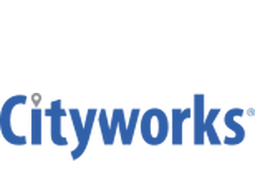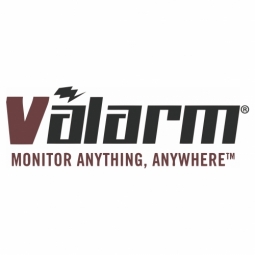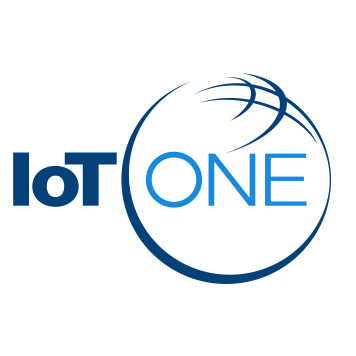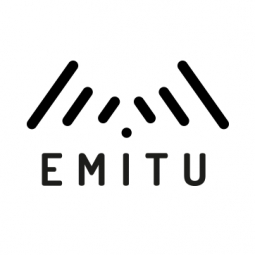Download PDF

Cityworks
Overview
HQ Location
United States
Year Founded
1986
Company Type
Private
Revenue
$10-100m
Employees
51 - 200
Website
Company Description
Founded in 1986, Azteca Systems supports more than 650 customers throughout the United States and around the world ranging in size from single user sites to installations that service millions of people and multiple disciplines. These clients include public works agencies, large and small communities, water/wastewater/stormwater districts, streets and traffic, parks and recreation, facilities, and other organizations involved with capital assets infrastructure and the maintenance associated with its care and operation.
Azteca Systems began as a consulting firm focused on delivering mapping support to US Federal agencies. Earning a solid reputation in the application of Geographic Information Systems (GIS), the company was sought to help public works agencies understand and implement GIS in their organizations. As a result, Azteca Systems’ attention was turned toward the management and care of assets and infrastructure. The company pioneered a new approach to work management with Cityworks and in 1996 released the first iteration of the product.
A recognized industry leader, Azteca Systems created Cityworks, a GIS-centric asset maintenance management solution integrated with Esri’s GIS technology. The Cityworks approach is innovative and unique among a cadre of legacy systems, leveraging the inherent value and investment of GIS data.
Azteca Systems began as a consulting firm focused on delivering mapping support to US Federal agencies. Earning a solid reputation in the application of Geographic Information Systems (GIS), the company was sought to help public works agencies understand and implement GIS in their organizations. As a result, Azteca Systems’ attention was turned toward the management and care of assets and infrastructure. The company pioneered a new approach to work management with Cityworks and in 1996 released the first iteration of the product.
A recognized industry leader, Azteca Systems created Cityworks, a GIS-centric asset maintenance management solution integrated with Esri’s GIS technology. The Cityworks approach is innovative and unique among a cadre of legacy systems, leveraging the inherent value and investment of GIS data.
IoT Solutions
What is Cityworks?
Cityworks empowers GIS to manage both physical infrastructure and land-focused asset management. Organizations allocate considerable resources toward developing and maintaining their GIS, Cityworks capitalizes on this valuable resource. Cityworks and Esri ArcGIS combine to make the perfect platform for designing and creating GIS-centric public asset management solutions.
Service requests, work orders, inspections, and projects are used to track citizen concerns and all types of work activities—cyclical or reactive—with their associated costs. Map layers can be created to display information such as all open requests, pavement condition, all repaired potholes for a given time period, etc. Reports of all types can be generated on the fly using various search parameters or set up as customized templates. Cityworks empowers staff at all levels—field workers, call takers, and administration—to get the information they need to perform their jobs efficiently and make wise use of the resources to manage assets and provide services. Adding Cityworks Server PLL to a deployment provides all the land-focused asset management capabilities for permitting, licensing, and code enforcement
In order to effectively manage assets, one needs to know what and where they are. At the core of any asset management system is an asset inventory. Cityworks is uniquely designed to utilize the GIS geodatabase as the asset inventory. Though other approaches may interface with a GIS – generally for map visualization – Cityworks truly utilizes the GIS geodatabase as the asset inventory.
Cityworks leverages the inherent value of a GIS-centric, enterprise asset inventory by not only managing the assets and their associated attributes (type, condition, installation date, etc.), but also the work done to care for assets. The linkage between assets and work orders is maintained such that the history of completed work orders against a specific asset is viewable and is easily retrieved. If an asset is not yet identified in the geodatabase, Cityworks can manage work performed by associating it to a valid address and later seamlessly updating the history once the asset is reflected in the geodatabase.
Unique to GIS, assets can be modeled in real-world representations. Features can be shown on an intuitive map view and visualized in a hierarchy table form. An asset can be represented as a point, line or polygon feature. As well, related assets can be attached to a primary feature, allowing for a visualization of assets that are traditionally difficult to see in map views. For example, a traffic signal can be modeled as a point—the point being the base or mounting platform upon which the traffic signal pole stands. Various items such as crossing signals, pedestrian buttons, junction boxes and mast arms can all be attached to the pole (point) as related objects—each as a separate asset.
Maintenance management can only be performed with an accurate asset inventory. Today, most maintenance management systems have incorporated the practices of asset and maintenance management together into a single application. Cityworks is unique in that it also brings the location component of these features into the System Environment. Being built on top of the leading GIS software, Cityworks brings together powerful technologies into an intuitive, easy-to-use interface to perform both asset and maintenance management.
Cityworks empowers GIS to manage both physical infrastructure and land-focused asset management. Organizations allocate considerable resources toward developing and maintaining their GIS, Cityworks capitalizes on this valuable resource. Cityworks and Esri ArcGIS combine to make the perfect platform for designing and creating GIS-centric public asset management solutions.
Service requests, work orders, inspections, and projects are used to track citizen concerns and all types of work activities—cyclical or reactive—with their associated costs. Map layers can be created to display information such as all open requests, pavement condition, all repaired potholes for a given time period, etc. Reports of all types can be generated on the fly using various search parameters or set up as customized templates. Cityworks empowers staff at all levels—field workers, call takers, and administration—to get the information they need to perform their jobs efficiently and make wise use of the resources to manage assets and provide services. Adding Cityworks Server PLL to a deployment provides all the land-focused asset management capabilities for permitting, licensing, and code enforcement
In order to effectively manage assets, one needs to know what and where they are. At the core of any asset management system is an asset inventory. Cityworks is uniquely designed to utilize the GIS geodatabase as the asset inventory. Though other approaches may interface with a GIS – generally for map visualization – Cityworks truly utilizes the GIS geodatabase as the asset inventory.
Cityworks leverages the inherent value of a GIS-centric, enterprise asset inventory by not only managing the assets and their associated attributes (type, condition, installation date, etc.), but also the work done to care for assets. The linkage between assets and work orders is maintained such that the history of completed work orders against a specific asset is viewable and is easily retrieved. If an asset is not yet identified in the geodatabase, Cityworks can manage work performed by associating it to a valid address and later seamlessly updating the history once the asset is reflected in the geodatabase.
Unique to GIS, assets can be modeled in real-world representations. Features can be shown on an intuitive map view and visualized in a hierarchy table form. An asset can be represented as a point, line or polygon feature. As well, related assets can be attached to a primary feature, allowing for a visualization of assets that are traditionally difficult to see in map views. For example, a traffic signal can be modeled as a point—the point being the base or mounting platform upon which the traffic signal pole stands. Various items such as crossing signals, pedestrian buttons, junction boxes and mast arms can all be attached to the pole (point) as related objects—each as a separate asset.
Maintenance management can only be performed with an accurate asset inventory. Today, most maintenance management systems have incorporated the practices of asset and maintenance management together into a single application. Cityworks is unique in that it also brings the location component of these features into the System Environment. Being built on top of the leading GIS software, Cityworks brings together powerful technologies into an intuitive, easy-to-use interface to perform both asset and maintenance management.
Parent Company
IoT Snapshot
Cityworks is a provider of Industrial IoT data science services, and software design and engineering services services, and also active in the aerospace, cities and municipalities, oil and gas, transportation, and utilities industries.
Technologies
Use Cases
Functional Areas
Industries
Services
Technology Stack
Cityworks’s Technology Stack maps Cityworks’s participation in the IoT Technology stack.
-
Devices Layer
-
Edge Layer
-
Cloud Layer
-
Application Layer
-
Supporting Technologies
Technological Capability:
None
Minor
Moderate
Strong
Case Studies.

Case Study
Leveraging GIS Data for Prioritizing Traffic Safety Service Requests: A Case Study of Oakland
The City of Oakland Department of Transportation (OakDOT) was faced with the challenge of receiving more traffic safety improvement requests than they had the resources to implement. The city needed a method to effectively prioritize these service requests. The challenge was further compounded by the fact that traffic-related incidents were the leading cause of death for people aged 5 to 24, and the second leading cause for all other age groups under 85 in the U.S. Low-income communities and communities of color were more likely to experience traffic-related injury and death. Therefore, the city needed a solution that would not only prioritize service requests but also ensure equity in service delivery.
Similar Suppliers.

Supplier
TrackoBit
TrackoBit is the fastest growing Telematics software company based out of India. We are determined to expand to every corner of the world and connect the remotest of areas with the latest GPS Tracking technology. We have been in business since 2018. We have covered more than 1100 cities with around 1,00,000 vehicles running on our portal. Our network is growing every day with new vehicles joining in every minute and fresh data coming in every millisecond. Our software works day and night, ensuring impeccable accuracy of data along with the uptime of 99.9% which is one of the best in the industry. Companies riding with us - Amazon India, Maruti Suzuki, Red Bus, Tata Steel, TCI, Bonn Breads and many more.
Partners.

Supplier
Valarm
Valarm is Industrial Internet of Things / IoTValarm provides rapid, effective deployment of geo-enabled, real-time, mobile and stationary sensor networks.Any sensor (existing in the field or brand new out of the box) is connected to Valarm Tools Cloud and delivers your information in your dashboards and business intelligence / analytics systems, like your GIS.They specialize in providing ready-to-go packages for you and your teams to easily monitor your assets (like water, vehicles, air, chemicals, fluids) for any number of factors (like flow rate, volume, machinery, resource levels, quality).








